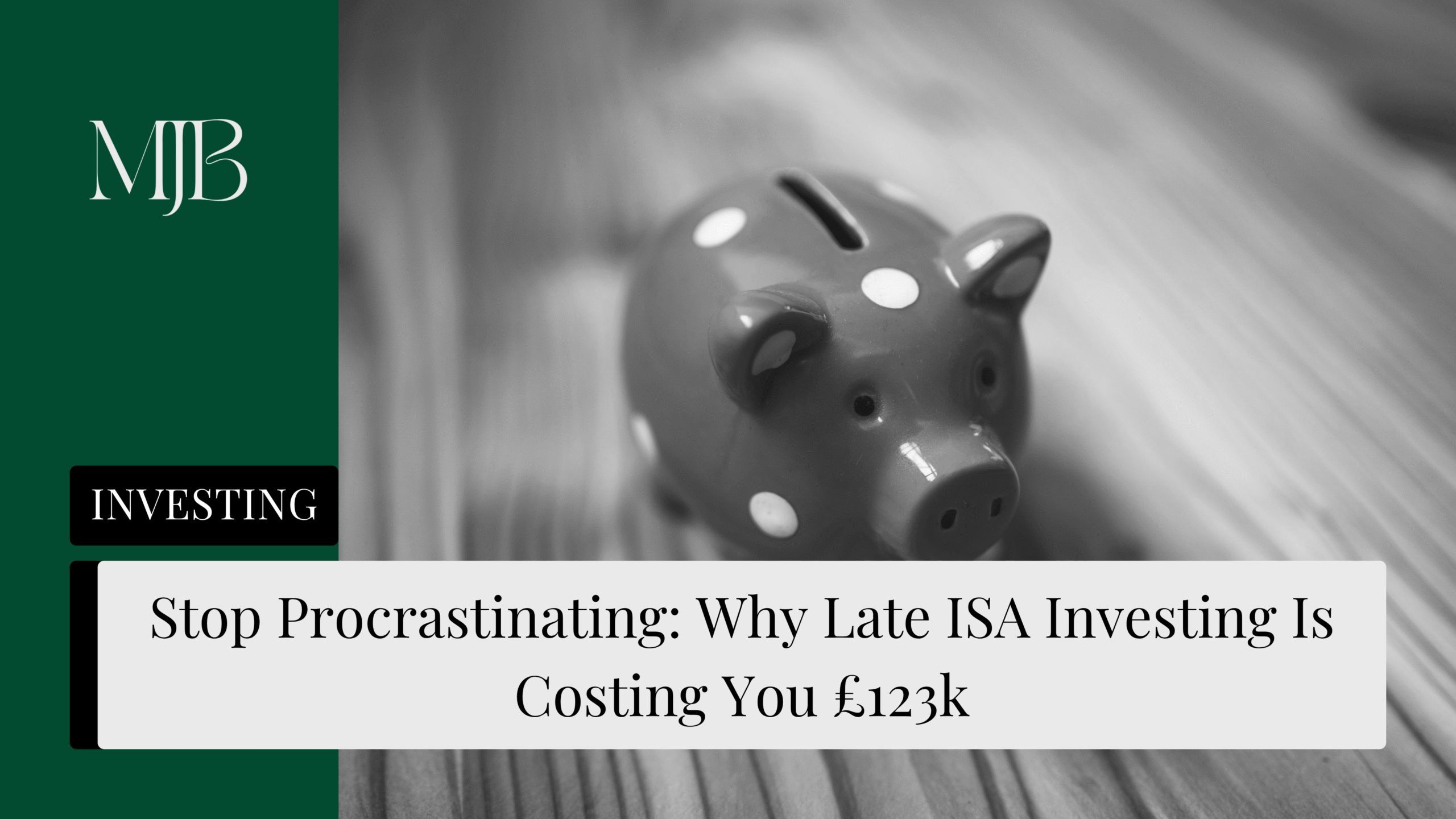Procrastination might be harmless when it comes to Netflix binges, but delaying your ISA investments? That’s a £123,000 mistake over 20 years.
New analysis from Bowmore Wealth shows UK investors who wait until the April deadline to maximise their £20,000 ISA allowance are leaving serious money on the table. We’re talking six-figure sums here – the kind that could fund early retirement or that dream home deposit.
Here’s why timing your ISA investments matters more than you think, and how to fix this expensive habit.
The £123k Wake-up Call
Let’s cut to the chase. If you’ve been investing your full £20,000 ISA allowance at the start of each tax year for the past two decades, you’d be sitting on £1.47 million right now. Not bad, right?
But if you’re part of the “I’ll do it in March” crowd? You’d have £1.34 million instead. That £130,000+ difference isn’t pocket change – it’s compound interest working against you.
“Investors who delay their contributions could miss out on substantial gains in the long term,” says Mark Incledon, CEO at Bowmore Wealth Group. “You want to spend time in the market, not trying to time the market.”
This timing gap matters because every month you delay is a month of potential growth you’re kissing goodbye.
Why Early Investment Wins Every Time
Think of compound interest like a snowball rolling downhill. The earlier you start, the bigger that snowball gets by the bottom.
When you invest your ISA allowance in the first month of the tax year, rather than the last, you’re giving your money 11 extra months to work. Even modest gains during those months generate their own returns, creating a compounding effect that accelerates over time.
Early investors also dodge another common trap: market timing anxiety. Instead of trying to guess when stocks are “cheap enough,” you’re consistently putting money to work regardless of market conditions.
The Smoothing Effect Nobody Talks About
Here’s something most people miss: spreading your investments throughout the year actually reduces risk.
When you dump £20,000 into the market in April, you’re at the mercy of whatever’s happening that specific month. Maybe it’s a great time to buy, maybe it’s not. You’re essentially gambling on a single moment.
But invest regularly throughout the year? You automatically smooth out the bumps. Some months you’ll buy high, others low – and that averaging effect typically works in your favor long-term.
“Missing out on gains when markets rise makes it harder to build a cushion for market downturns,” Incledon explains.
How to Fix Your ISA Timing
The solution isn’t rocket science, but it does require breaking old habits.
Set up a direct debit for roughly £1,667 monthly (that’s your £20,000 divided by 12). This way, you’re consistently investing without the deadline stress.
Can’t afford the full amount monthly? Start with whatever you can manage. Even £500 monthly invested early beats £6,000 invested late.
The key is consistency. Your future self will thank you when compound growth has worked its magic over decades.
The Bottom Line
Every month you delay your ISA investments is money left on the table. We’re not talking about small change here; we’re talking about the difference between a comfortable retirement and a wealthy one.
Ready to stop procrastinating? Set up that direct debit today and let time do the heavy lifting.
FAQ
Q1: Should I invest my full ISA allowance immediately if I have £20,000 sitting around?
A: Generally, yes. Research shows lump-sum investing typically beats drip-feeding when you have the cash available. The stock market tends to rise over time, so getting your money working sooner usually pays off.
Q2: What if I can’t afford £20,000 annually – should I bother with an ISA?
A: Absolutely. Even smaller amounts benefit from compound growth and tax-free status. Start with what you can afford and increase contributions as your income grows.
Q3: Is there ever a good reason to wait until April to invest?
A: Only if you genuinely don’t have the money earlier in the year. Otherwise, you’re just giving up potential growth for no good reason.
Q4: Should I choose stocks and shares ISA over cash ISA?
A: For long-term wealth building (5+ years), stocks and shares ISAs typically outperform cash ISAs significantly. Cash ISAs are better for short-term savings where you need guaranteed access.
Q5: What happens if the market crashes right after I invest early?
A: Short-term volatility is normal and expected. If you’re investing for the long term (which you should be with ISAs), temporary dips are just buying opportunities. Time in the market beats timing the market.
DISCLAIMER
Effective Date: 15th July 2025
The information provided on this website is for informational and educational purposes only and reflects the personal opinions of the author(s). It is not intended as financial, investment, tax, or legal advice.
We are not certified financial advisers. None of the content on this website constitutes a recommendation to buy, sell, or hold any financial product, asset, or service. You should not rely on any information provided here to make financial decisions.
We strongly recommend that you:
- Conduct your own research and due diligence
- Consult with a qualified financial adviser or professional before making any investment or financial decisions
While we strive to ensure that all information is accurate and up to date, we make no guarantees about the completeness, reliability, or suitability of any content on this site.
By using this website, you acknowledge and agree that we are not responsible for any financial loss, damage, or decisions made based on the content presented.






